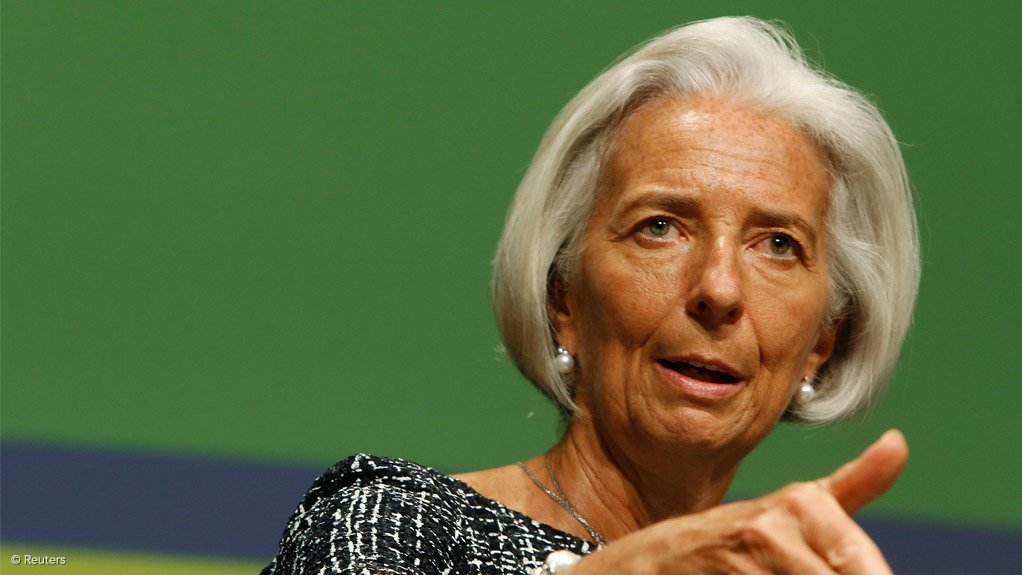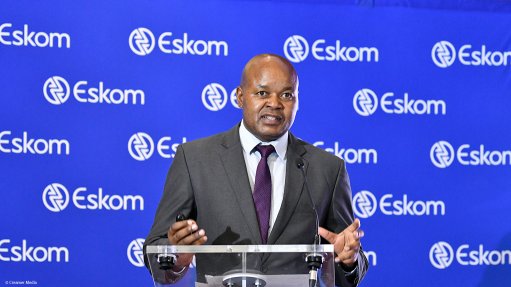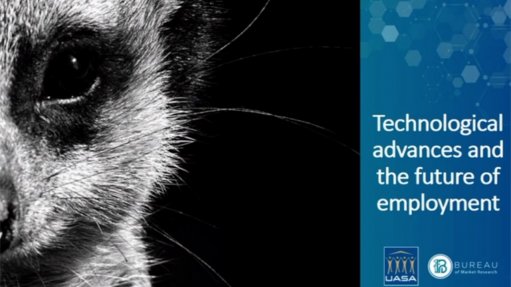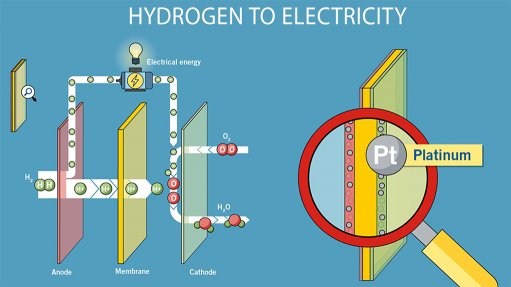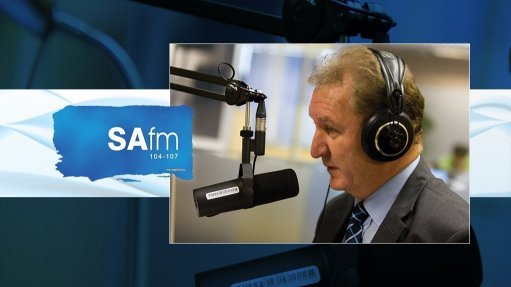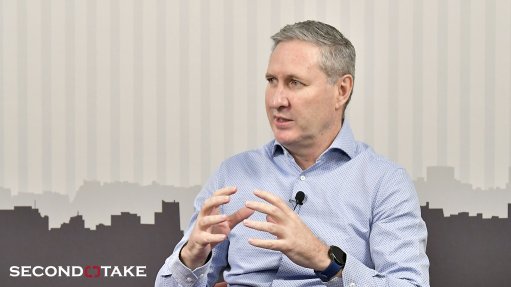‘Infrastructure, institutions, people’ key to Africa’s sustained rise
International Monetary Fund (IMF) MD Christine Lagarde has reaffirmed that sub-Saharan Africa should grow by about 5.5% this year and attract a record $80-billion in investment. However, she warned on Thursday that there was an urgent need to “build infrastructure, build institutions and build people” not only to sustain the growth momentum, but also to ensure that the benefits of that growth were more widely shared.
In a keynote address to the ‘Africa Rising – Building to the Future’ conference in Maputo, Mozambique, Lagarde said that, although two-thirds of the countries in the region had enjoyed ten or more years of uninterrupted growth and the outlook was positive, “the tide of growth has not lifted all boats”.
“Poverty remains stuck at unacceptably high levels – still afflicting about 45% of the region’s households. Inequality remains high. And some countries, still facing recurring internal conflict, are struggling to exit from fragility.”
There were also the headwinds of slower growth outlooks for both advanced economies and commodity-consuming emerging-market economies, the weaker commodity price outlook and tightening external financial conditions as advanced economies began reining in their accommodative monetary policies.
Speaking in South Africa ahead of the Maputo gathering, IMF chief economist Dr Olivier Blanchard cautioned that while the effects of the financial crisis where now less acute, the repair process would take a long time and the choices facing policymakers had become increasingly complex.
He said the average sensitivity of emerging-market economies to a one percentage point rise in US gross domestic product (GDP) was a positive 0.4 of a percentage point increase in growth in such economies. But the size of the benefit would depend heavily on how trade exposed a country’s economy was to the world’s largest economy.
For many African economies, trade with China was even larger and Blanchard indicated that a one percentage point decline in GDP growth in China would translate to an average 0.2 of a percentage point decline in emerging-market economy growth.
The IMF expected China to grow at a slower pace of around 7.5% this year and is forecasting the US economy to expand by 2.8% in 2014.
Blanchard said that Africa’s growth performance has not only been the result of higher commodity prices and exports, with the end of a number of civil conflicts, as well as improvements in governance and infrastructure playing an important role. However, he warned that mining remains a “poisoned gift” for many African countries, which needed to find a way of using the revenues derived from mining to take “the next step”.
“Mining is not inclusive, it doesn’t naturally lead to a ‘next step’, and it may lead to corruption in some countries. So, when you have mining you have to use it carefully and try to use the revenues to prepare for the next step. The question is, what is the next step? Is it manufacturing, is it high-productivity agriculture, is it a bit of everything?” Blanchard reflected.
Legarde argued that infrastructure provided the “foundations of any strong and durable edifice” and that Africa needed to focus on closing its energy, transport and technology infrastructure gaps.
“Over the past three decades, per capita output of electricity in sub-Saharan Africa remained virtually flat. Only 16% of all roads are paved, compared with 58% in South Asia. These shortfalls represent huge costs to businesses and to people.”
The second policy priority related to building institutions that ensured better governance and transparency, as well as sound economic frameworks. “We all know that Africa has tremendous potential – it is home to more than 30% of the world’s mineral reserves. Properly managed, these endowments offer unparalleled opportunity for economic growth and development.”
But in many African countries, only a few individuals were capturing the rents from these extractive industries. Governments needed to intervene to improve transparency and accountability and ensure that the benefits were more widely spread.
But Africa’s greatest potential lay with its people, Legarde argued, noting that Africa is the youngest continent in the world and that, by 2040, the continent was projected to boast the largest labour force in the world of 1-billion workers.
“By some estimates, a one percentage point increase in the working age population can boost GDP growth by 0.5 percentage points. This is huge.”
But the continent also had to focus on developing its women, who were mostly employed in informal activities.
“The gains to be made by overcoming these constraints are immense – particularly through girls’ education. By some estimates, the economic loss in developing countries from the education gap between girls and boys could be as high as $90-billion a year – almost as much as the infrastructure gap for the whole of sub-Saharan Africa.”
Comments
Press Office
Announcements
What's On
Subscribe to improve your user experience...
Option 1 (equivalent of R125 a month):
Receive a weekly copy of Creamer Media's Engineering News & Mining Weekly magazine
(print copy for those in South Africa and e-magazine for those outside of South Africa)
Receive daily email newsletters
Access to full search results
Access archive of magazine back copies
Access to Projects in Progress
Access to ONE Research Report of your choice in PDF format
Option 2 (equivalent of R375 a month):
All benefits from Option 1
PLUS
Access to Creamer Media's Research Channel Africa for ALL Research Reports, in PDF format, on various industrial and mining sectors
including Electricity; Water; Energy Transition; Hydrogen; Roads, Rail and Ports; Coal; Gold; Platinum; Battery Metals; etc.
Already a subscriber?
Forgotten your password?
Receive weekly copy of Creamer Media's Engineering News & Mining Weekly magazine (print copy for those in South Africa and e-magazine for those outside of South Africa)
➕
Recieve daily email newsletters
➕
Access to full search results
➕
Access archive of magazine back copies
➕
Access to Projects in Progress
➕
Access to ONE Research Report of your choice in PDF format
RESEARCH CHANNEL AFRICA
R4500 (equivalent of R375 a month)
SUBSCRIBEAll benefits from Option 1
➕
Access to Creamer Media's Research Channel Africa for ALL Research Reports on various industrial and mining sectors, in PDF format, including on:
Electricity
➕
Water
➕
Energy Transition
➕
Hydrogen
➕
Roads, Rail and Ports
➕
Coal
➕
Gold
➕
Platinum
➕
Battery Metals
➕
etc.
Receive all benefits from Option 1 or Option 2 delivered to numerous people at your company
➕
Multiple User names and Passwords for simultaneous log-ins
➕
Intranet integration access to all in your organisation



